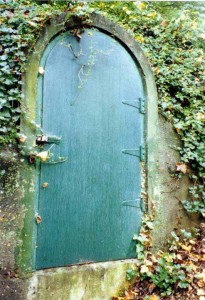May 14, 2015 — I was in eighth grade listening to hit songs on the radio sung by Doris Day and Perry Como, when my friend, Anne Sullivan, said, “You’ve gotta listen to this.” It was “Roll With Me, Henry,” sung by Etta James (1938-2012), the first rock ‘n’ roll song (now commonly known as doo wop) I had ever heard. The song, I learned today, has an interesting backstory.
According to Wikipedia: “The Wallflower” (also known as “Roll with Me, Henry” and “Dance with Me, Henry“) is a 1955 popular song. It was one of several answer songs to “Work with Me, Annie” and has the same 12-bar blues melody. It was written by Johnny Otis, Hank Ballard, and Etta James. Etta James recorded it for Modern Records, with uncredited vocal responses from Richard Berry, under the title “The Wallflower” and it became a rhythm and blues hit, topping the U.S. R&B chart for 4 weeks. It was popularly known as “Roll with Me Henry”. This original version was considered too risque to play on pop radio stations.
In 1955, the song was covered for the pop market by Georgia Gibbs with the title “Dance With Me Henry”. That version charted, hitting the top five of several pop charts, including number one on the Most Played In Juke Boxes chart on May 14, 1955 , spending three weeks on top of that chart.[1] In 1958, Etta James made her own cover version of “Dance With Me Henry”.
Hank Ballard (1927-2003) & The Midnighters (formerly called The Royals) released “Work With Me, Annie” on January 14, 1954. The Federal Communications Commission (FCC) immediately opposed it incanting that it had crossed over to a white teenage audience and the overtly sexual lyrics were thought unsuitable for them. But efforts to ban the song failed. The song had sold a million copies as did each of the succeeding Annie songs in the trilogy (“Work With Me, Annie,” “Roll With Me, Henry” and “Annie’s Aunt Fanny.”)
The success of these recordings instigated the practice of recording double entendre and answer songs. “The Wallflower” (popularly known as “Roll With Me, Henry”) is the answer song to “Work With Me, Annie.” The Midnighters recycled the melody once more for “Henry’s Got Flat Feet (Can’t Dance No More).”
An answer or response song, as the term suggests, is a song made in answer to a previous song, usually in recorded music. This concept became widespread in blues and rhythm & blues in the 1930s through the 1950s. Country music answer songs were popular in the 1950s and ’60s, primarily recorded by female singers in response to an original male recording. Response or answer music extends through to today in hip hop, rock music and filk music. Wikipedia defines filk music as both a musical culture, genre, and community tied to science fiction/fantasy fandom and a type of fan labor. The genre has been active since the early 1950s, and played primarily since the mid-1970s. The term (originally a typographical error) predates 1955.
It appears to me that these answer/response song artists were engaging in pre-tech-age forms of flash fiction, blogging, and blog comments and replies.
Here are some YouTube links to original performances of these songs:
Hank Ballard & The Midnighters’ “Work With Me, Annie” — a 12-bar blues song, the first in the Annie series.
Etta James, “Roll With Me, Henry”
This is a later, Platters version of “Roll With Me, Henry” — or as The Platters female singer, Zola Taylor, (1938-2007) says it, “Hennery.” This is funny — and I thought I could jitterbug. Brings back memories.
Hank Ballard & The Midnighters, “Annie Had a Baby”
The Midnighters, “Annie’s Aunt Fanny”
The Champions, “Annie Met Henry.”
There are no coincidences, some say, yet I stumbled on this today, May 14, 2015 , the 60th anniversary of Georgia Gibbs’s (1919-2006) “Dance With Me, Henry” topping the jukebox charts, because a fellow blogger visited my site for the first time and commented. I responded and in turn, visited her blog — she writes about music, mostly rock ‘n’ roll (http://www.jinglejanglejungle.net). She wrote a post about The Champs and “Tequila” and that made me think of the first rock ‘n’ roll song I had ever heard.
Samantha Mozart





